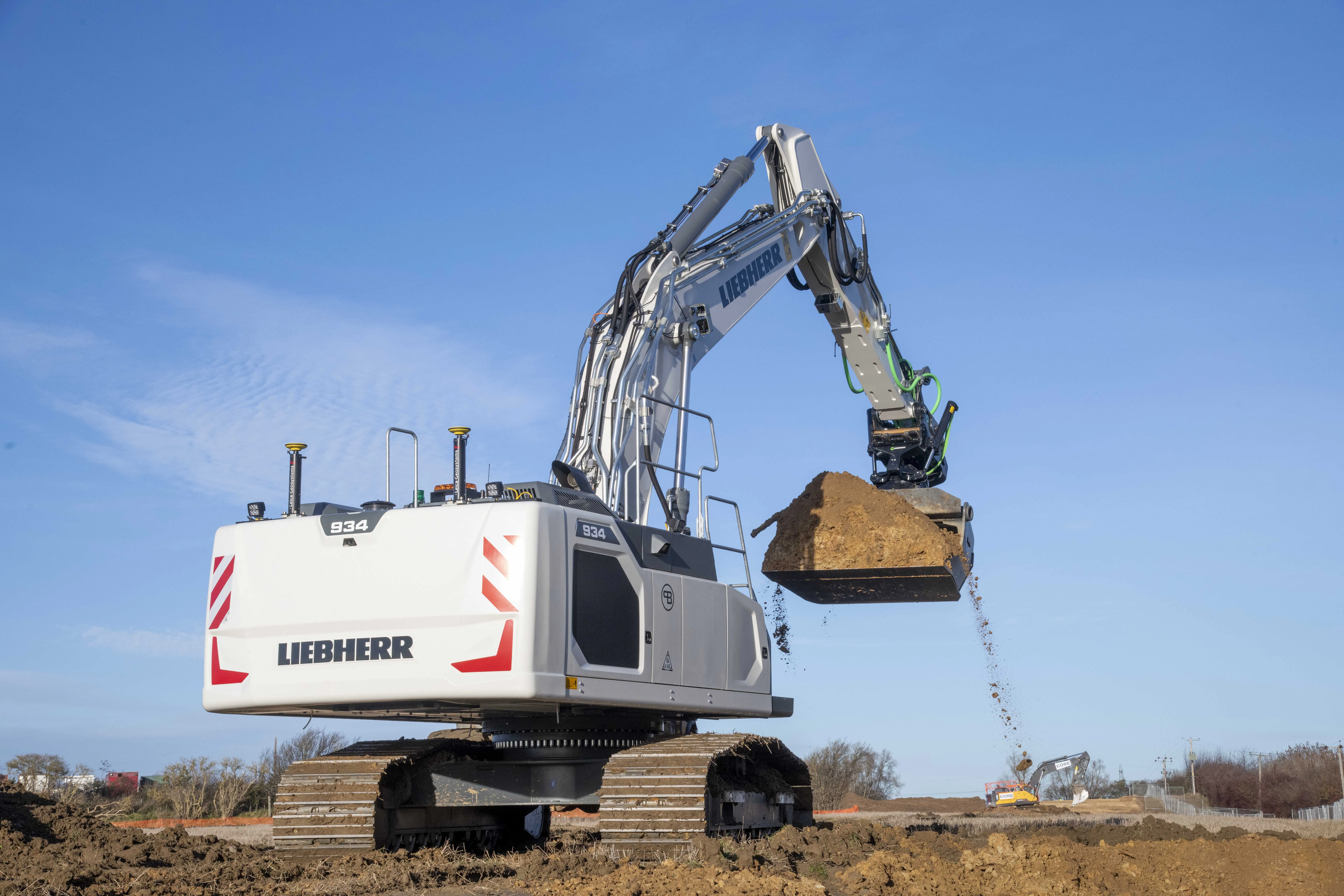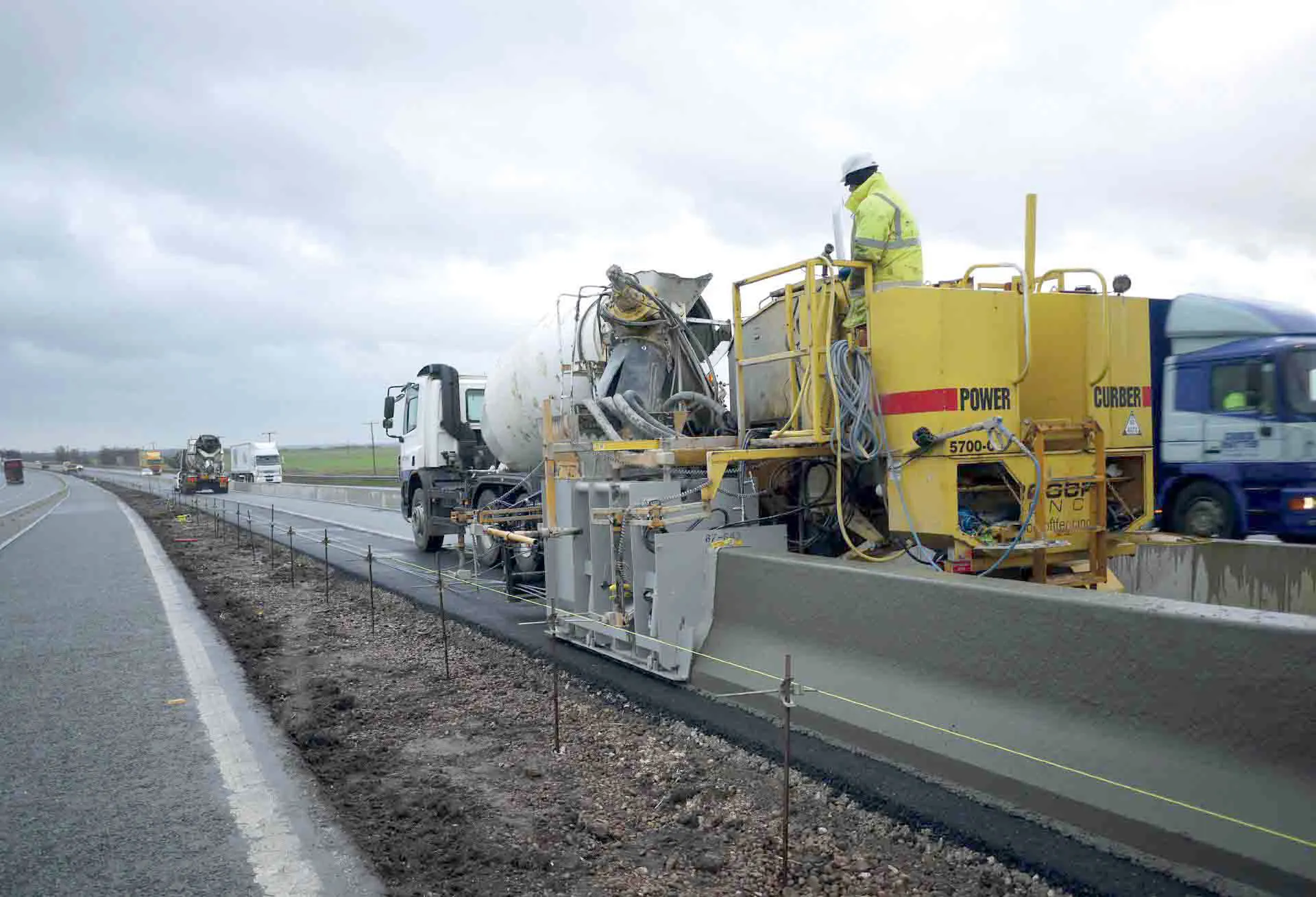
The first Liebherr excavator in the world with a factory-fitted Leica machine control system has gone into service with a UK civil engineering contractor.
An R 934 G8 crawler, the first to leave the factory in France since Liebherr and Leica Geosystems joined forces last year, has been added to the fleet at Brad-Pave. It is equipped with the Leica 3D passive system soon to be updated to include automatic inclination/rotation function.
Brad-Pave - which employs only four people and is based in England - specialises in road construction, deep drainage and earthmoving.
The machine arrived in the UK towards the end of last year with an operating weight of almost 38.5 tonnes. But soon after, a Steelwrist X32 tiltrotator on 80mm pins was added, taking the total package to just over 40 tonnes.
“We’ve used GPS guidance for a number of years and having the opportunity to have an integrated system on a Liebherr excavator was an ideal scenario for us,” said Paul Bradshaw, director of Brad-Pave.
“We are hoping that one of the benefits of taking this option will be the increased reliability of a built-in system. Not only does it do away with the requirement for traditional setting-out but it is almost 100% fool-proof. The addition of the Leica Co-Pilot system controlling the Steelwrist will just make any project that little bit quicker and more accurate,” said Bradshaw.
The partnership between Liebherr and Leica Geosystems enables customers to buy generation 6 and 8 crawler and wheeled excavators with 2D or 3D control systems as an option.
Leica Geosystems, part of the Hexagon Group, supplies of sensors, software and services for surveying, construction, infrastructure, mining, mapping and other geospatial content-dependent industries.







